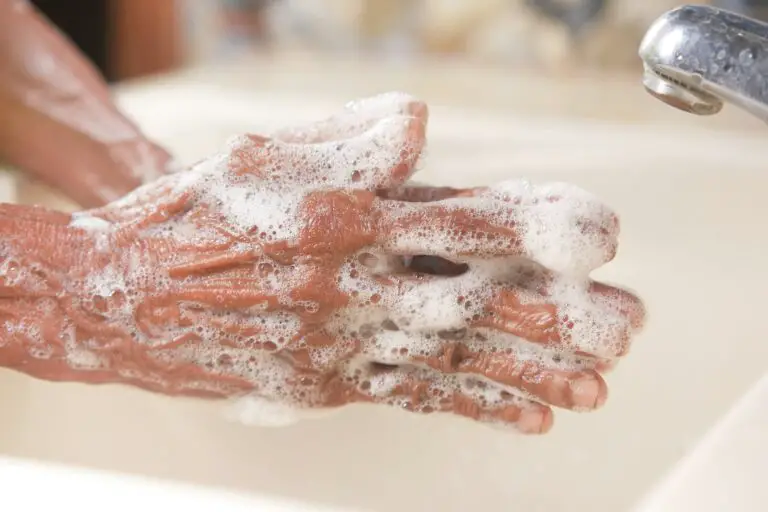
Summary
- Importance of Hydration: Ensuring drinks are accessible for individuals with limited mobility is vital for their health, aiding digestion, cognitive function, and healing processes.
- Health Risks: Inadequate fluid intake can lead to serious issues such as constipation, kidney problems, urinary tract infections, and confusion, particularly in older adults.
- Practical Strategies: Care providers should assess individual needs, use adaptive equipment, make environmental adjustments, and establish hydration schedules to facilitate access to drinks.
- Involvement and Training: Engaging individuals in their care promotes independence, while training caregivers on hydration importance and techniques is essential for effective support.
This guide will help you answer 8.2a Ensure drinks are within reach of those that have restrictions on their movement/ mobility.
Ensuring that drinks are within reach for individuals with restricted movement or mobility is an essential part of care. Hydration is essential for maintaining health and well-being. It becomes even more essential for individuals who may not be able to easily access a drink due to limited mobility. As someone working within the care sector, providing adequate support to meet this need is an essential responsibility.
Why Hydration Matters
- Physiological Functions: Hydration supports digestion, regulates body temperature, and transports nutrients.
- Mental Clarity: Proper hydration can aid cognitive function and mood.
- Promotes Healing: Adequate fluid intake aids the body’s healing processes.
- Prevents Dehydration: Dehydration can lead to increased hospital visits, urinary tract infections, and confusion, particularly in older adults.
Consequences of Inadequate Hydration
If individuals with limited mobility do not receive enough fluids, they face various health risks. These risks include:
- Constipation: Lack of fluids can slow bowel movements.
- Kidney Problems: Dehydration can promote kidney stones and infections.
- Infections: The risk of urinary tract infections is higher with inadequate hydration.
- Confusion and Drowsiness: Dehydration can impact mental states.
Legal and Ethical Obligations
Caring for individuals with limited mobility comes with both legal and ethical responsibilities. As per the Health and Social Care Act, care providers must ensure the health and welfare of those under their care. This obligation includes providing access to fluids.
Who Might Be Affected?
Individuals with restricted mobility can include:
- Elderly People: Natural ageing can bring about mobility limitations.
- Disabled Individuals: Physical disabilities may hinder movement.
- Post-Surgery Patients: Recovery from surgery may temporarily limit movement.
- Chronic Illness Sufferers: Conditions like arthritis can restrict physical activity.
Strategies for Ensuring Accessibility
There are several practical measures carers can take to guarantee drinks are within easy reach:
Assessment and Planning
- Individual Assessment: Evaluate each person’s unique needs and capabilities.
- Personalised Plan: Develop a care plan detailing how to provide drink accessibility.
Equipment and Tools
Use of specific equipment can greatly aid in ensuring drinks are reachable:
- Adapted Cups: Use cups with easy-grip handles or no-spill lids.
- Hydration Aids: Straws or angled straws can aid individuals who have difficulty lifting a cup.
- Drink Dispensers: Devices that allow users to pour drinks with minimal effort.
Environmental Adjustments
Create an environment that supports easy access to drinks:
- Placement of Drinks: Ensure drinks are placed on stable surfaces within arm’s reach.
- Bedside Tables: Use bedside tables with adjustable heights.
- Portable Trays: Consider the use of portable trays that can be moved with the individual.
Scheduling and Reminders
Regular hydration schedules and reminders can ensure consistent fluid intake:
- Hydration Schedule: Set times for offering drinks throughout the day.
- Visual Reminders: Use stickers or notes as reminders for carers.
- Technology Aids: Use apps or alarms to remind individuals or carers when it is time to drink.
Involving the Individual
Involving the individual in their own care promotes independence and dignity:
- Choice and Preference: Offer a selection of drinks to suit personal tastes.
- Encouragement: Gently remind and encourage individuals to drink regularly.
- Feedback: Ask for feedback about preferred methods and adjust accordingly.
Training and Sensitisation
Care workers need training to understand the importance of hydration and how to facilitate it effectively:
- Empathy Training: Understand challenges faced by those with limited mobility.
- Practical Workshops: Attend workshops on using adaptive equipment and technology.
- Regular Updates: Stay informed about new hydration aids and techniques.
Monitoring and Evaluation
Ensure ongoing evaluation to meet hydration needs effectively:
- Daily Monitoring: Check the individual’s fluid intake and note any changes.
- Health Checks: Be vigilant for signs of dehydration.
- Adjustment of Care Plans: Continuously modify care plans based on evaluation results.
Role of Family and Friends
Family and friends can play a supportive role:
- Education: Educate them about the importance of hydration.
- Support: Encourage them to assist in ensuring drinks are accessible.
- Visitation: During visits, offer and make accessible a range of beverages.
Issues and Potential Solutions
There are challenges that come with ensuring hydration for immobile individuals, but solutions exist:
- Forgetfulness: Use technology solutions like alarms and reminders.
- Taste Preferences: Offer variety to encourage regular intake.
- Resistance to Assistance: Engage in conversation to understand concerns and preferences.
Final Thoughts
The Care Certificate Standard 8.2a sets clear expectations. Ensuring drinks are within reach for those with restricted mobility is not just a duty, but a meaningful aspect of care that can greatly affect quality of life. By employing practical strategies, using appropriate aids, and continually involving the individuals in their care, you can actually improve their health and comfort. Always remember, small steps in improving accessibility can make a big difference in someone’s life.
Glossary and Key Terms
- Hydration
The process of providing adequate fluids to maintain health. It helps support bodily functions and overall well-being. - Mobility
The ability to move freely and easily. Limited mobility can affect a person’s independence and access to resources. - Dehydration
A condition that occurs when the body loses more fluids than it takes in. It can lead to various health issues, especially in vulnerable populations. - Urinary Tract Infection (UTI)
An infection that affects the urinary system. It can occur more frequently in individuals who do not drink enough fluids. - Cognitive Function
The mental processes involved in thinking, learning, and memory. Proper hydration can support better cognitive performance. - Personalised Care Plan
A tailored approach to care that addresses the specific needs of an individual. It includes strategies for ensuring access to hydration. - Adaptive Equipment
Tools or devices designed to assist individuals with limited mobility. Examples include special cups and straws that make drinking easier. - Environmental Adjustments
Changes made to a person’s surroundings to improve accessibility. This can include the placement of drinks within easy reach. - Hydration Schedule
A planned routine for providing fluids at regular intervals. It helps ensure individuals receive adequate hydration throughout the day. - Feedback Mechanism
A process for individuals to share their preferences and experiences regarding care. It helps carers adjust their approach to better meet needs.
Subscribe to Newsletter
Get the latest news and updates from Care Learning and be first to know about our free courses when they launch.






